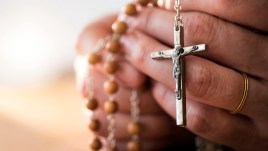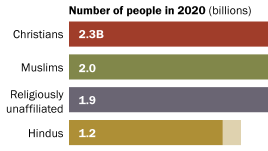
How religious is your state?
Explore our interactive database to find out how religious adults are in your state based on service attendance, prayer, belief in God, and importance of religion.
Numbers, Facts and Trends Shaping Your World
Explore our interactive database to find out how religious adults are in your state based on service attendance, prayer, belief in God, and importance of religion.
All
Publications
Kurds are playing a major role in the current conflict in Iraq, and are often mentioned alongside Iraq’s Sunni and Shia Muslim populations. But Kurds are an ethnic group, not a distinct religious sect within Islam; nearly all Iraqi Kurds consider themselves Sunni Muslims.
Pope Francis traveled to South Korea in August for Asian Youth Day, making his third international trip as pontiff. He visited a country that has experienced considerable religious change in recent decades. Here are six facts about Christianity in South Korea.
Nearly half of U.S. adults are connected to Catholicism. Read about going to Mass, Communion, confession and more.
Christians remain the largest religious group, and Muslims grew the fastest from 2010 to 2020. Read how the global share of Buddhists, Hindus, Jews and the religiously unaffiliated changed.
After years of decline, the U.S. Christian share now shows signs of leveling off. The new Religious Landscape Study explores trends in identity, beliefs and practices.
The Global Religious Futures (GRF) project is jointly funded by The Pew Charitable Trusts and The John Templeton Foundation. Here are some big-picture findings from the GRF, together with context from other Pew Research Center studies.





